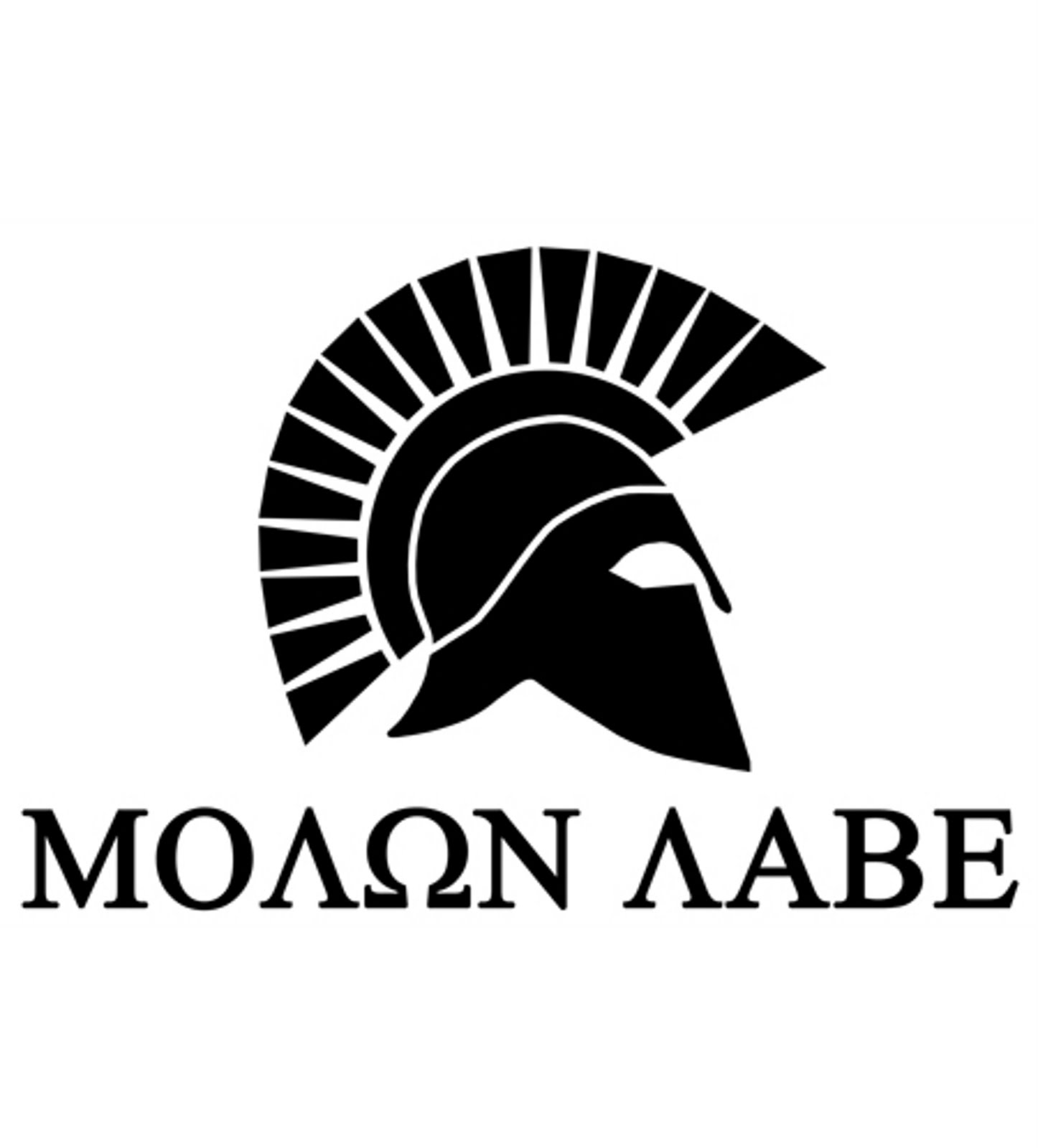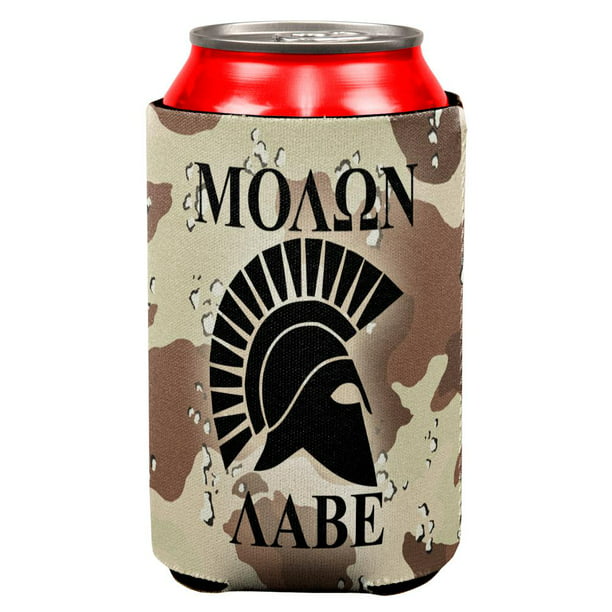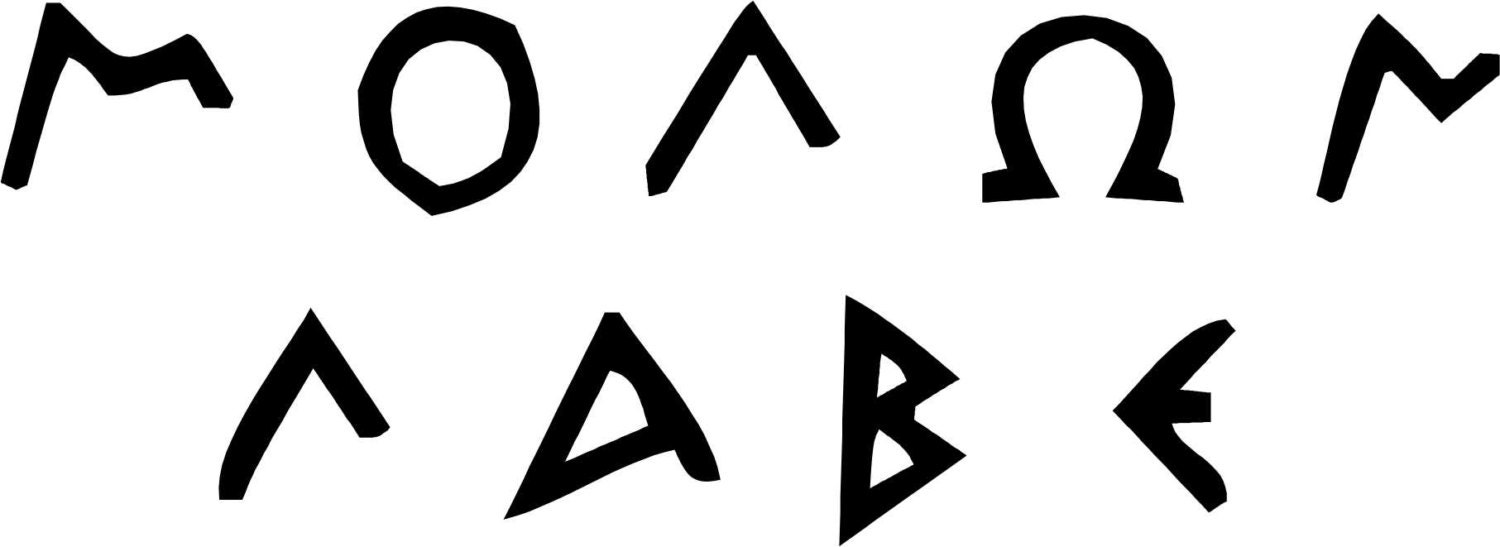How to Pronounce MOLON LABE? (Μολὼν λαβέ) Greek & English Pronunciation Guide YouTube

How to Pronounce MOLON LABE? (Μολὼν λαβέ) Greek & English Pronunciation Guide YouTube
American History Molon Labe made a lasting mark on American culture in the early 1800s. The phrase "come and take it" was inscribed on a flag in Texas, known as the Gonzales Flag, during a war that ensued between Texan colonists and the Mexican government.

Top 33 Molon Labe Tattoos [2021 Inspiration Guide]
Molon labe ( Ancient Greek: μολὼν λαβέ, romanized: molṑn labé ), meaning 'come and take [them]', is a classical expression of defiance. It is among the Laconic phrases reported by Plutarch, attributed to King Leonidas I in reply to the demand by Xerxes I that the Spartans surrender their weapons.

Molon Labe ΜΟΛΩΝ ΛΑΒΕ Meaning and History Ultra Patches Blog
Molon Labe (μολὼν λαβέ) is an Ancient Greek declaration of resistance against the surrender of arms to an adversary. The phrase has been used for centuries. However, gun rights advocates in America have begun using it to express their opposition to passing restrictive gun control legislation. See 3,000+ New Gun Deals HERE

Molon Labe Greek Lettering Decal Sticker 2PK » A1 Decals
Douglas County Sheriff John Hanlin's Facebook profile picture. Molon Labe (or ΜΟΛΩΝ ΛΑΒΕ) is a classical Greek phrase meaning "come and take [them]," attributed to King Leonidas of Sparta as a defiant response to the demand that his soldiers lay down their weapons. Gun-rights advocates have adopted the phrase as a challenge to perceived attempts by the government to confiscate.

Molon Labe Greek Morale Patch
"Molon labe" is a phrase that began during the Persian War, when the Persian Empire (then the biggest power in the world) was looking to expand from Asia into Europe. As an attempt to conquer the Greek City States, Darius of Persia sent his emissaries on a quest for a token tribute - "earth and water" - and almost all complied.

MOLON LABE, Greek Car Sticker car stickers Books, Maps, Stickers
August 6, 2012 Today is the anniversary of the Battle of Thermopylae (480 BC), one of the most famous battles in history . King Leonidas of Sparta said the phrase Molon Labe (means "Come and take them" in ancient Greek) to Xerxes I of Persia 2492 years ago when the Persians asked the Spartans to lay down their arms and surrender.

Molon Labe Greek Spartan Helmet 2nd Amendment 3 Percenter Vinyl Decal Sticker
Molon Labe. "Molon Labe" is an expression of defiance originally attributed to King Leonidas of Sparta that translates from Greek to mean "come and take [them]." The phrase is common among gun rights advocates and anti-government extremists who use it as a rallying cry against imagined threats of gun confiscation as well as proposed gun control.

Molon Labe Greek Morale Patch
Molon labe (Ancient Greek: μολὼν λαβέ), meaning 'come and take [them]', is a classical expression of defiance. It is among the Laconic phrases reported by Plutarch, attributed to King Leonidas I in reply to the demand by Xerxes I that the Spartans surrender their weapons.

Molon Labe Greek Spartan Helmet Desert Camo All Over Can Cooler Multi Standard One Size
Molon Labe —Ancient Greek for "come and take them," or literally: "Come! Take!"—is a phrase frequently invoked by the right-wing fringe of the "2A" community of gun owners.

Molon Labe Greek Spartan Crossbones Car Bumper Vinyl Sticker Decal 4.6"X4.6" eBay
"ΜΟΛΩΝ ΛΑΒΕ" or "Molon Labe", pronounced in the United States as (Mow-Lawn-Lah-Bay). If you want to pronounce it like the Greeks it's (Mow-Loan-Lah-Vay). Spelling Greek (UPPERCASE): ΜΟΛΩΝ ΛΑΒΕ Greek (First Letters Uppercase): Μολὼν λαβέ English (UPPERCASE): MOLON LABE English (First Letters Uppercase) : Molon Labe Translation and Grammatical Rules

Molon Labe Greek Morale Patch
Molōn Labe has become a go-to phrase to denounce political authorities removing the perceived rights of citizens, and its origins in Spartan history is used to solidify its meaning as a righteous stand against oppression.. At the battle of Thermopylae (480 BC), an allied Greek force attempted to stall a Persian invasion into Central Greece.

Molon Labe Greek Vinyl Decal Sticker Truck Window 6" Tall White Color eBay
The phrase molon labe (Ancient Greek μολών λαβέ molṑn labé; reconstructed Ancient Greek pronunciation [molɔːn labé]; Modern Greek pronunciation [moˈlon laˈve]) means "Come and take".

Molon Labe Greek Lettering Decal Sticker 2PK » A1 Decals
The context behind molon labe may not be known to all who deploy the phrase, but many no doubt are aware, in part thanks to Snyder's 300, that it stems from a Greek war against foreign invaders.

Molon Labe Greek Morale Patch
Download our exclusive shooting targets for FREE ($47 value) All the way back in 480 BC, when Persia was in the process of invading Greece and all of the Greek city-states, Sparta took the most exception to this and went to confront them. For their part, Persia was happy to do battle because they had a dramatically larger force.

Molon Labe Old Greek Lettering Decal
By contrast, there are very few phrases from the ancient Greek language that ordinary people can even recognize in the original language. μολὼν λαβέ ( molṑn labé) is one of those phrases. Literally, it means: "Having come, take." More idiomatically, it can be translated as: "Come and take them." Most people have heard a story about this phrase.

molon aabe The Greek phrase, 'Molon Labe!', meaning … Flickr
Molon labe ( Ancient Greek: μολὼν λαβέ, romanized : molṑn labé ), meaning 'come and take [them]', is a classical expression of defiance. It is among the Laconic phrases reported by Plutarch, [1] attributed to King Leonidas I in reply to the demand by Xerxes I that the Spartans surrender their weapons.